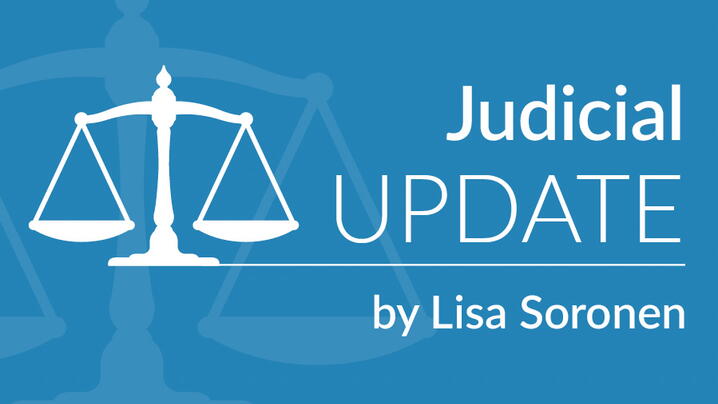
by Lisa Soronen, executive director, State and Local Legal Center (SLLC)
Most of the Trump administration’s disagreements over protecting undocumented immigrants have been with local governments. But on March 6, the Trump administration filed a complaint against the state of California. The administration claims three California statutes aimed at protecting undocumented immigrants are preempted by federal immigration law. The administration asked the court to issue a preliminary injunction disallowing California from enforcing the statutes.
The Immigrant Worker Protection Act prevents employers from consenting to warrantless federal immigration agents entering nonpublic workspaces or allowing such agents to inspect employee records without a subpoena or warrant unless they have a “notice of inspection.” This act also requires employers to notify employees of upcoming employee records inspections within 72 hours of receiving the notice of the inspection.
Regarding requiring a warrant to enter nonpublic spaces, the Trump administration asserts that the federal Immigration Reform and Control Act, which established a “comprehensive framework for combating the employment of illegal aliens,” contains no such requirement. Regarding the prohibition on inspecting employee records without a subpoena or warrant, “[there] can be no serious dispute that the statute, when it applies, deliberately stands as an obstacle to the enforcement of federal laws and targets the United States,” according to the Trump administration. Regarding the 72-hour notice requirement, the complaint asserts it would be “unthinkable” if such a requirement were applied to the federal or California bureaus of investigations.
The statute on inspection and review of facilities housing federal detainees allows the California attorney general to examine and report on the “due process provided” to civil immigration detainees in local detention facilities and “the circumstances around their apprehension and transfer to the facility.” According to the Trump administration, the federal Immigration and Nationality Act (INA) grants the federal government authority to arrange for the detention of “aliens.” “Just as incarceration of convicted criminals in a nonfederal facility does not afford states the authority to second-guess the circumstances of the prisoners’ arrest and criminal conviction, the states have no authority to second-guess the United States’ immigration enforcement efforts through an inspection and review scheme.”
The California Values Act prohibits state and local officials from providing release date information and other personal information, or transferring an individual to immigration authorities. State and local law enforcement may share release-date information only when an individual has been convicted of certain crimes or when the information is available to the public. State and local law enforcement agencies can transfer an individual to federal immigration authorities only if the federal authorities present a “judicial warrant or judicial probable cause determination,” or the individual in question has been convicted of certain crimes.
Per the INA, “aliens” may first complete their state criminal sentence before Department of Homeland Security (DHS) issues an “immigration detainer” that “serves to advise another law enforcement agency that [DHS] seeks custody of an alien presently in the custody of that agency, for the purpose of arresting and removing the alien.”
According to the complaint, the information and transfers withheld per the California Values Act “deliberately seek to undermine the system that Congress designed, under which states are permitted to have aliens complete their state criminal sentences before being subject to removal by federal officials.”
Also, prohibiting state and local government officials from sharing information on an “alien’s” release date, the Trump administration argues, “directly conflicts” with 8 U.S.C. § 1373(a), under which a state or local government may not prohibit the exchange of information regarding an individual’s immigration status.
Related Resouces
State and Local Legal Center. SLLC provides assistance to state and local governments in connection with Supreme Court litigation by drafting amicus briefs representing the state and local government perspective.
Are You an "Innie" or an "Outie"? This PM magazine article discusses the pros and cons of having inside or outside legal counsel.
Legal Theories for Sanctuary Cities. This article explains the legal background of sanctuary city laws.
New, Reduced Membership Dues
A new, reduced dues rate is available for CAOs/ACAOs, along with additional discounts for those in smaller communities, has been implemented. Learn more and be sure to join or renew today!
